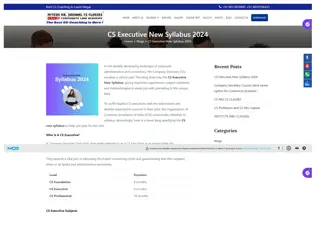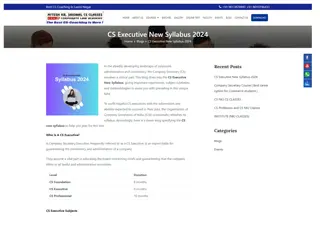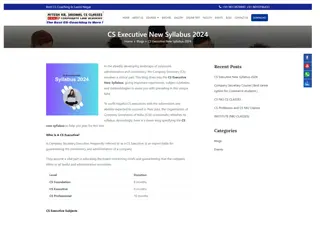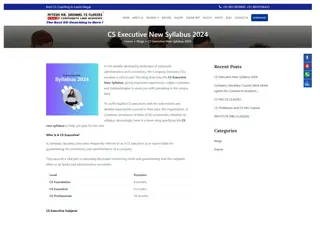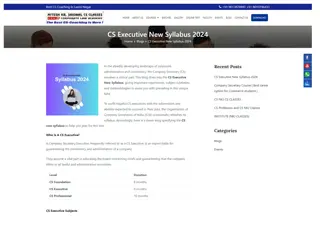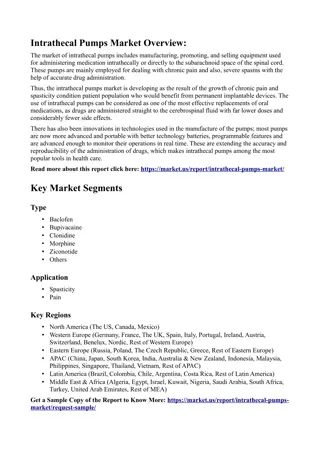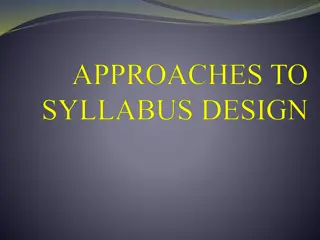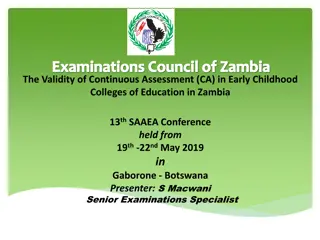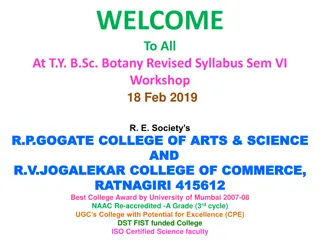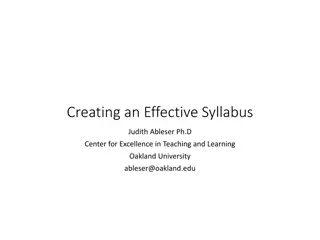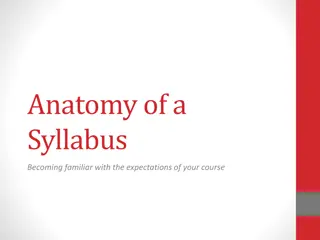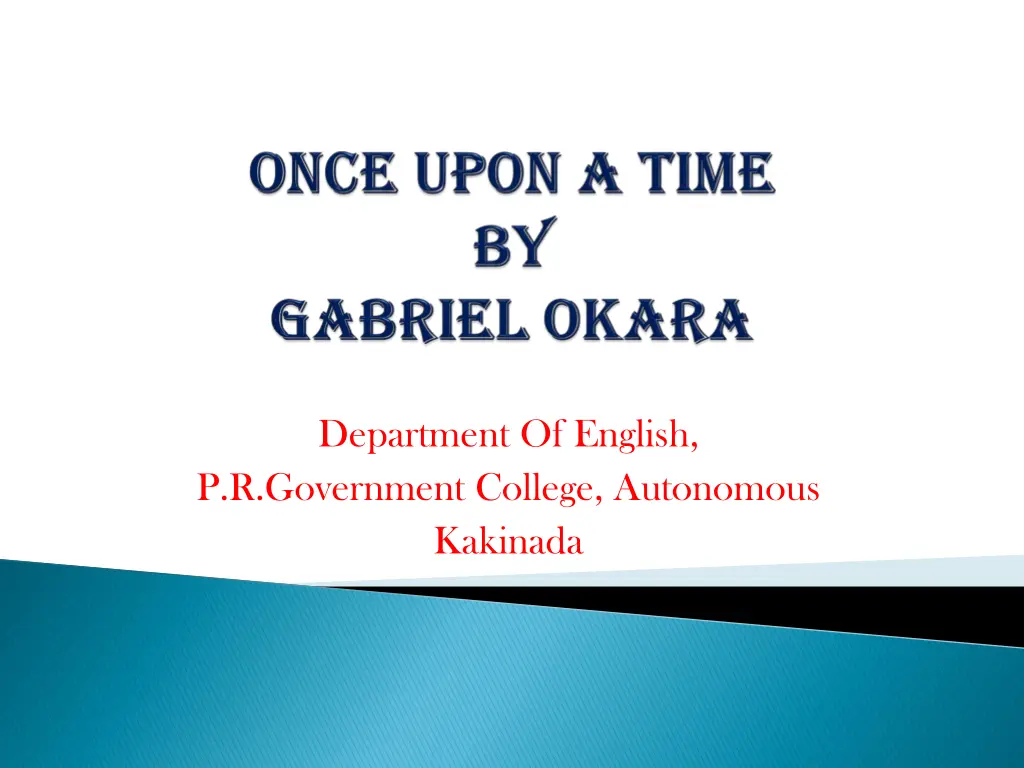
Exploring the Poem 'Once Upon a Time' by Gabriel Okara
Delve into the poignant poem "Once Upon a Time" by Nigerian poet Gabriel Okara, as he reflects on the contrast between traditional African values and Western influence. The narrative unfolds through a conversation between a father and his son, highlighting the shifting dynamics of expressing true emotions and personalities. Witness a lyrical exploration of past happiness and the longing for genuine connections in a changing world.
Download Presentation

Please find below an Image/Link to download the presentation.
The content on the website is provided AS IS for your information and personal use only. It may not be sold, licensed, or shared on other websites without obtaining consent from the author. If you encounter any issues during the download, it is possible that the publisher has removed the file from their server.
You are allowed to download the files provided on this website for personal or commercial use, subject to the condition that they are used lawfully. All files are the property of their respective owners.
The content on the website is provided AS IS for your information and personal use only. It may not be sold, licensed, or shared on other websites without obtaining consent from the author.
E N D
Presentation Transcript
Department Of English, P.R.Government College, Autonomous Kakinada
The poet of the poem Once upon a time is Gabriel The poet of the poem Once upon a time is Gabriel Okara who is a Nigerian. He was born on 24th Okara who is a Nigerian. He was born on 24th of April in the year 1921.In that year Nigeria got independence in the year 1921.In that year Nigeria got independence from Britain so at that time they were still influenced by from Britain so at that time they were still influenced by the British culture the British culture of April
The background of the The background of the poem is that he is poem is that he is remembering the way remembering the way people used to behave and people used to behave and interact with each other and interact with each other and he is comparing it with how he is comparing it with how people interact with others people interact with others now. How the people used now. How the people used to do things with their hearts to do things with their hearts and with pleasure and and with pleasure and happiness. It describes what happiness. It describes what happens when a traditional happens when a traditional African culture and African culture and civilization meets with the civilization meets with the western culture. western culture.
The poem is a conversation The poem is a conversation between a father and his son between a father and his son where the son does things where the son does things with emotion and the father with emotion and the father wants to forget his fake wants to forget his fake personality and re personality and re- -learn and create real personalities create real personalities from his son. And he is from his son. And he is asking the son to show him asking the son to show him how to express true love and how to express true love and show real personality to show real personality to others. others. learn and
Once upon a time, son, Once upon a time, son, they used to laugh with their hearts they used to laugh with their hearts and laugh with their eyes: and laugh with their eyes: but now they only laugh with their teeth, but now they only laugh with their teeth, while their ice while their ice- -block block- -cold eyes search behind my shadow. search behind my shadow. cold eyes
It the first stanza the author mentions that people used to laugh with their heart they used to laugh with their emotions, when they would laugh they would do it wholeheartedly and with warmth and they used to laugh with their eyes and show pleasure with them.
And now they do it with only their teeth not with And now they do it with only their teeth not with their heart, meaning they do not really want to their heart, meaning they do not really want to laugh but do it just to get closer to you and with laugh but do it just to get closer to you and with their darky gloomy cold eyes they watch you and their darky gloomy cold eyes they watch you and wait for you from the corner of their eyes waiting wait for you from the corner of their eyes waiting for you to leave search behind my shadow . for you to leave search behind my shadow .
There There was a time indeed was a time indeed they used to shake hands with their hearts: they used to shake hands with their hearts: but that s gone, son. but that s gone, son. Now they shake hands without hearts Now they shake hands without hearts while their left hands search while their left hands search my empty pockets. my empty pockets.
While their left hands search my empty While their left hands search my empty pockets from this we can see that they are pockets from this we can see that they are trying to use him to get to his money or receive trying to use him to get to his money or receive something from him. This also shows that the something from him. This also shows that the people s personalities are not real and true people s personalities are not real and true
Feel at home! Come again: they say, and when I come again and feel at home, once, twice, there will be no thrice- for then I find doors shut on me.
In the third stanza he is talking about when people ask In the third stanza he is talking about when people ask you to come again and say feel at home you go there you to come again and say feel at home you go there once, twice and the third time they will not let you in once, twice and the third time they will not let you in thinking that you are a pest and that they do not wanted thinking that you are a pest and that they do not wanted to see you anymore. The words feel at home is used to see you anymore. The words feel at home is used for when you want a guest to feel welcomed and that for when you want a guest to feel welcomed and that they belong in that household. they belong in that household.
So I have learned many things, son. I have learned to wear many faces like dresses home face, office face, street face, host face, cocktail face, with all their conforming smiles like a fixed portrait smile.
In the fourth stanza he talks about how he has learned to put In the fourth stanza he talks about how he has learned to put on faces like how outfits and masks are put on at different on faces like how outfits and masks are put on at different times, and with different people you act differently, for example times, and with different people you act differently, for example in the office you act in one way to a person but when you meet in the office you act in one way to a person but when you meet them on the street you act another way to them, and how all the them on the street you act another way to them, and how all the faces that people have on different occasions. faces that people have on different occasions.
He says I have learned too which is suggesting He says I have learned too which is suggesting that he has also changed with the change of the that he has also changed with the change of the people around him. he also mentions with all people around him. he also mentions with all their conforming smiles like a fixed portrait their conforming smiles like a fixed portrait suggesting that they all have the same smile all suggesting that they all have the same smile all the time not showing any true emotion. the time not showing any true emotion.
And I have learned too to laugh with only my teeth and shake hands without my heart. I have also learned to say, Goodbye , when I mean Good-riddance : to say Glad to meet you , without being glad; and to say It s been nice talking to you , after being bored.
In the fifth stanza he says that he has also been In the fifth stanza he says that he has also been influenced by the people around him and he has influenced by the people around him and he has learned to keep his true personality a secret and show learned to keep his true personality a secret and show the world a fake personality, to laugh with only me the world a fake personality, to laugh with only me teeth this part is connected with the part in the first teeth this part is connected with the part in the first stanza they only laugh with their teeth from this you stanza they only laugh with their teeth from this you can see a comparison of what people do and what he can see a comparison of what people do and what he does now. This also shows that he has changed to blend does now. This also shows that he has changed to blend in with the environment. in with the environment.
Here in the part where he says I have also learned to Here in the part where he says I have also learned to say `Goodbye when I mean `Good say `Goodbye when I mean `Good- -riddance that is pointing out to the fact that they will, without thinking pointing out to the fact that they will, without thinking and without meaning it they will say Goodbye . He and without meaning it they will say Goodbye . He mentions forward that Glad to meet you meaning that mentions forward that Glad to meet you meaning that he is happy to see you and is happy with your presence he is happy to see you and is happy with your presence without being glad meaning that the did not wanted to without being glad meaning that the did not wanted to talk to you and they disliked your presence and if they talk to you and they disliked your presence and if they could they would of avoided you and it s been nice could they would of avoided you and it s been nice talking to you, after being bored saying that they say talking to you, after being bored saying that they say things that they do not mean things that they do not mean riddance that is
But believe me, son. I want to be what I used to be when I was like you. I want to unlearn all these muting things. Most of all, I want to relearn how to laugh, for my laugh in the mirror shows only my teeth like a snake s bare fangs!
In the sixth stanza he concludes it all saying that he does not In the sixth stanza he concludes it all saying that he does not like what he has become and he wants to be like he used to like what he has become and he wants to be like he used to be when he was like a child so small and innocent. He points be when he was like a child so small and innocent. He points out that he really wants to learn how to laugh with emotions out that he really wants to learn how to laugh with emotions like you really mean it and he compares his laugh like that of like you really mean it and he compares his laugh like that of a snake s fangs that shows only the teeth snakes are those a snake s fangs that shows only the teeth snakes are those menacing creatures that are full of venom and can never be menacing creatures that are full of venom and can never be trusted and to compare his laugh with a snake gives the trusted and to compare his laugh with a snake gives the image that the man really does not like his fake personality. image that the man really does not like his fake personality. This stanza sums it well by giving the image to the reader that This stanza sums it well by giving the image to the reader that he is not happy and satisfied with himself. he is not happy and satisfied with himself.
So So show me, son, show me, son, how to laugh; show me how how to laugh; show me how I used to laugh and smile I used to laugh and smile once upon a time when I was like you. once upon a time when I was like you.
In the In the last stanza last stanza father to show him how to laugh and smile like he did when he to show him how to laugh and smile like he did when he was a child. The last line sums up the entire poem really was a child. The last line sums up the entire poem really well making sure that all strings are tied. well making sure that all strings are tied. father asking and pleading to his son asking and pleading to his son


